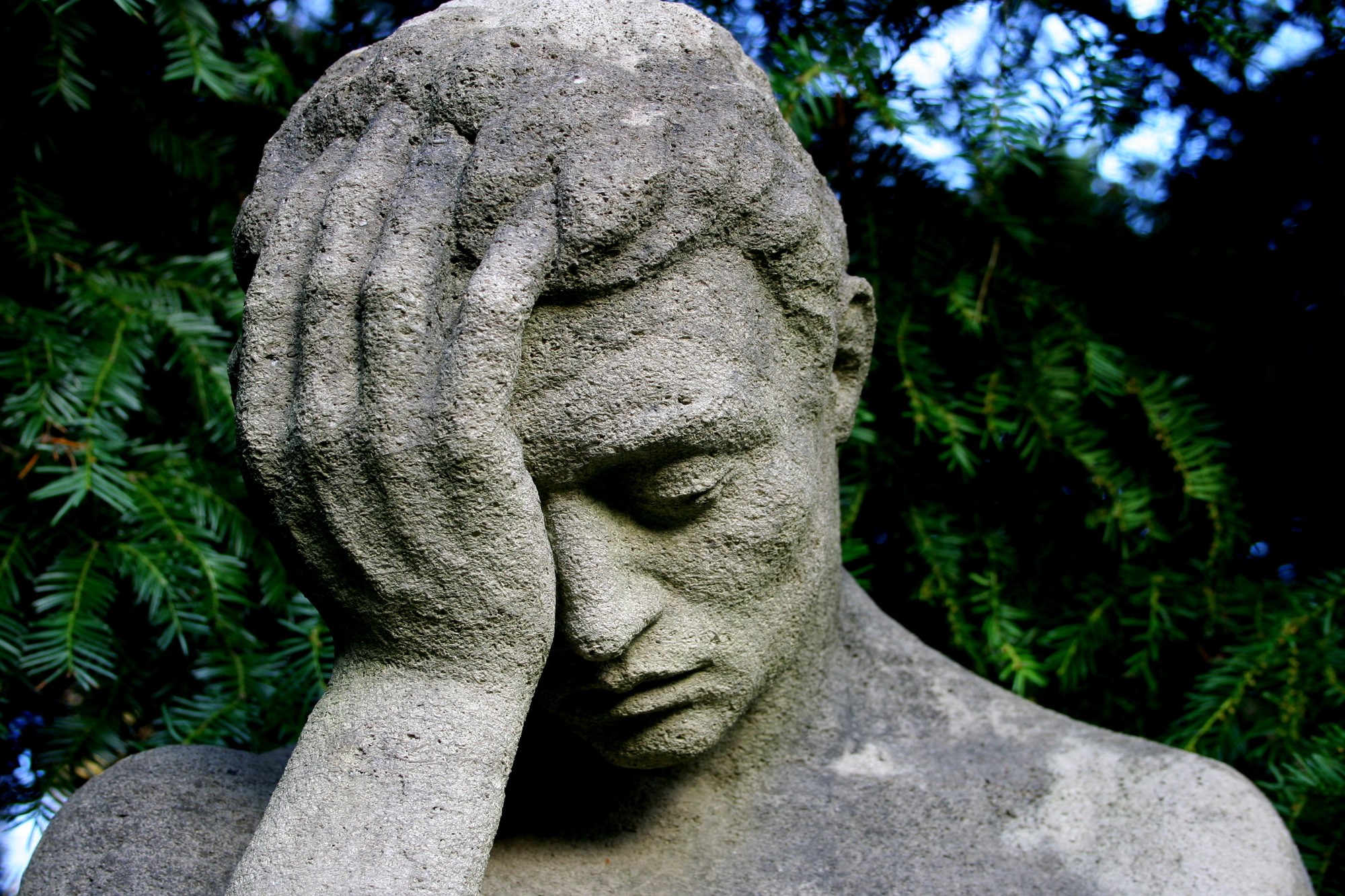Agnes Callard’s Philosophy of Sex

In a recent short article in The Wall Street Journal, University of Chicago philosophy professor Agnes Callard lays out an intriguing philosophy of sex that raises some important issues in this fascinating subfield of philosophy. Because her article is so short, I offer these reflections less as criticisms of her view, which in an expanded form would likely include answers to all of the problems I explore, and more as an attempt to elaborate upon her claims and move the conversation forward.
Callard’s view is composed of three claims. First, sexual desire is essentially reciprocal: it is “when I want you in such a way that all I want is for you to want me in exactly the same way.” Second, sexual acts are “enactment[s]” or symbolic “expression[s]” of the idea of such a desire, and thus a kind of ritual. Finally, the idea of consent “fails to capture what sex, the ritual, is about” because consent is “restricted to the domain of what can be directly, non-symbolically expressed,” but the idea that sex expresses is not expressible non-symbolically. Let’s consider each claim in turn.
On Callard’s account, sexual desire is a “second-order” desire. A “first-order” desire is a desire for something that is not itself a desire: a desire for ice cream, say, or to go for a walk. A second-order desire is a desire for a desire. For example, a drug addict may want to want to quit the drug but, at the same time, he may actually want to keep taking the drug. The drug addict has two desires: the first-order desire to take the drug, and the second-order desire to want to quit the drug. You can imagine such an addict saying something like: “I want to be the kind of person who doesn’t want to take the drug, but I’m not – at least, not yet.” Compare this to an addict who both wants to keep taking the drug, and also wants to want to keep taking the drug. You can imagine this person saying something like: “I want to keep taking the drug, and I’m content to be the sort of person who wants to take the drug.”
In Callard’s account of sexual desire, sexual desire is a second-order desire whose object is not the desirer’s own desire, as in the drug addict case, but rather the desired other’s desire: it is the desire that the other desire the desirer in the way that the desirer desires the other. Notice, though, that such a desire implicitly refers to two first-order desires: the desirer’s desire, whose object is the other, and the other’s desire, whose object is the desirer. In Callard’s account, then, a sexual desire is a desire that the other have a first-order desire that mirrors one of the desirer’s first-order desires. And Callard’s account fails to characterize the nature of these first-order desires.
This raises a few problems for the account. First, the most natural candidate for the first-order desires at play in sexual desire is the desire to have sex with the other, and the desire to have sex with the desirer. Plugging this into Callard’s account, we get the result that sexual desire presupposes a desire to have sex with another, and is a desire that the other desire to have sex with desirer. This latter desire is satisfied when the other desires to have sex with the desirer, and so desires the desirer in the same way as the desirer desires the other. But if this is right, then Callard’s account does not tell us much about the nature of sexual desire because, as we have seen, she wants to define sex in terms of sexual desire. This is akin to defining a “hoofed mammal” as an ungulate, and then defining an “ungulate” as a hoofed mammal.
In addition, that a desirer’s desire has a reciprocal desire as its object does not, by itself, seem to make that desire sexual. For example, I may want to take a walk with someone and want the person to want to take a walk with me. This latter desire has a reciprocal desire as its object, and so it is satisfied just when the other person wants to take a walk with me. But it is plainly not a sexual desire.
Finally, Callard’s account implies that it is impossible to have a sexual desire with respect to something that lacks the capacity to desire. But we routinely recognize that some people desire sex with objects, and there seems to be no reason not to characterize their desires as sexual.
The line of reasoning I have been pursuing so far suggests that Callard has things backwards: instead of defining sex in terms of sexual desire, we should define sexual desire in terms of sex. On this account, a sexual desire just is a desire to engage in sexual activity. However, any philosopher of sex will tell you that it is notoriously difficult to pin down the nature of sexual activity, and it is beyond the scope of this article to try to do that here.
Although Callard is likely mistaken about the nature of sexual desire, I think she does capture something important about sexual pleasure. At one point, she invokes Aristotle for the claim that “if you are a truly erotic person” faced with a choice between two lovers, you would choose a person who desperately wants to have sex with you but can’t over a person who “can and will, but doesn’t really feel like it.” On the one hand, this seems like an odd claim. Surely, the answer to the question which lover would satisfy one’s sexual desire is clear: the lover with whom one can actually engage in sexual activity. But it seems plausible that sex with someone who, while validly consenting, doesn’t feel like doing it may be far less pleasurable than the exquisite agony of sexually desiring someone who reciprocates one’s desire without being able to satisfy it. And it is surely less pleasurable than sexual activity with someone who does reciprocate. This suggests that a significant part of sexual pleasure lies in your awareness of your partner’s desire – that is, in the satisfaction of your second-order desire that your partner want you – rather than merely in the satisfaction of your first-order desire to have sex, your sexual desire.
Furthermore, even if Callard is mistaken about the nature of sexual desire, she may be right about the nature of sex. So, let’s consider this aspect of her account next. According to Callard, sex is a ritual – an enactment or symbolic expression of the idea of sexual desire. Callard’s idea here is intriguing: she is saying, at the least, that sexual acts belong in the same category as other bodily acts that convey meaning such as bowing, waving, or shaking hands. The specific meaning sexual acts convey is that the actor sexually desires the other. You might object that sex acts are a means of satisfying our sexual desires, rather than a means of conveying that we have those desires. Callard’s view appears to commit her to denying that sex acts satisfy sexual desires: for her, sexual desires are satisfied just when the desired other has desires that mirror the desirer’s desires, so sexual acts are unnecessary and even irrelevant to their satisfaction. But we have seen reasons to doubt this model of sexual desire.
Nevertheless, again I think Callard captures something important about, if not sex per se, then perhaps good sex. Sex acts can both be instrumental in satisfying desire and meaningful in conveying desire. For example, a passionate kiss may be a way of telling you something – that I want you – and at the same time, a way of fulfilling that very want. The fact that sexual behavior is culturally variable – kissing, for one, seems not to be a cultural universal – lends credence to the idea that it is ritualistic. Out of the many possible acts that could equally well serve to satisfy our sexual desires, we perhaps choose those which, partly as a matter of cultural convention, we know will also effectively convey the idea of our desires to the desired other. If what I said previously about sexual pleasure is right, we do this because it substantially enhances the pleasures of sex.
We finally turn to Callard’s last claim, that the idea of consent is insufficient to capture “what sex, the ritual, is about.” Her point seems to be that while sex acts are capable of expressing the idea of sexual desire, acts of consent cannot. That one can consent to sex without having any sexual desire – recall the lover in Aristotle’s thought experiment who is willing to have sex with you but isn’t really into it – clearly shows that sexual consent is not inherently expressive of sexual desire. If what I have said before is correct, it follows from this that consent is certainly insufficient for truly pleasurable sex, which, in my view, ipso facto makes it insufficient for good sex. There is indeed, then, something flat and thin about a sexual ethics that focuses only on issues of consent: it will not be able to deliver a full account of when sex is good. But in defense of consent-based sexual ethics, the role of consent was never to tell us when sex is good, but to tell us when it is permissible. As long as we bear in mind that the latter is not the only value question around sex, I do not see much of a problem for the prevailing sexual ethic’s emphasis upon consent.
Agnes Callard’s philosophy of sex may be less than persuasive at points – at least in the highly truncated form in which The Wall Street Journal presented it – but it gets at some of the key issues in the philosophy of sex: the nature of sex and sexual desire, and the role of consent in sexual ethics. For this reason alone, her contribution is laudable.




